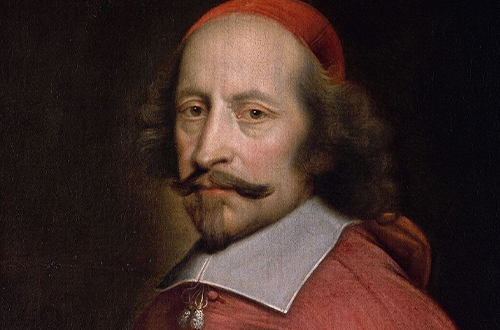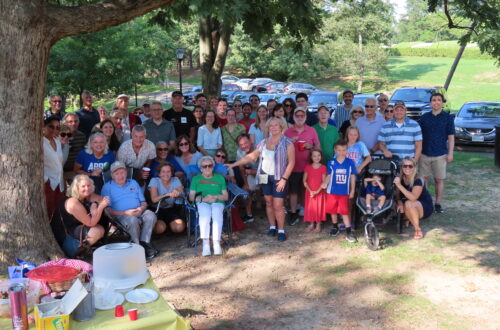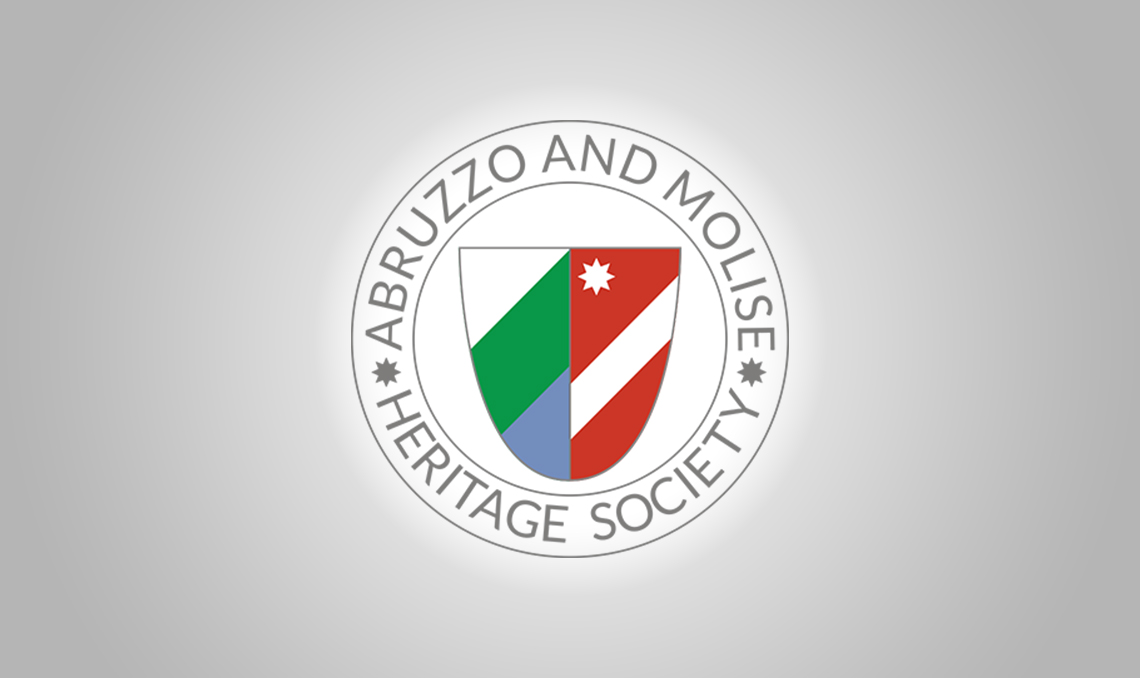-
Jules Mazarin: Statesman, Diplomat, Cardinal
By Joseph “Sonny” Scafetta, Jr.

Jules Mazarin
Credit: WikipediaThanks to the book and film versions of The Three Musketeers, many people know of the power wielded in 17th century France by First Minister of State, Cardinal Richelieu. Not many likely know that Richelieu’s assistant and successor, the Abruzzo-born Jules Mazarin, had an equally noteworthy career and a lasting impact on European diplomacy and politics.
Giulio Raimondo Mazzarino was born on July 14, 1602, in the community of Pescina (population 4,195 according to the Census) in the province of L’Aquila in the region of Abruzzo. His father Pietro was a chamberlain for the wealthy Colonna family, and his mother, Ortensia Bufalini, was a Roman noblewoman. Giulio was the oldest of two boys and four girls.
Giulio was admitted to the Jesuit College in Rome at the age of seven. At the age of 20, he entered Complutense University in Madrid, Spain, to study law. There he learned Spanish as a second language. He returned to Rome to complete his legal studies and received the title of doctor in 1628 so that he could practice both civil and canonical law. He then became a lieutenant in the army of the Papal States. Later that year, Pope Urban VIII made him a papal emissary. Mazzarino achieved his first diplomatic success on April 6, 1631, with the Treaty of Cherasco between France and Spain, to the satisfaction of King Louis XIII of France and his First Minister of State, Cardinal Armand Jean du Plessis, Duke of Richelieu. In 1632, the same pope named Mazzarino the vice-legate at Avignon, France, and appointed him a prelate entitled to wear ecclesiastical dress. However, he never became a priest! Nevertheless, he did learn French as a third language.
In 1634, the pope named him nuncio extraordinary to Paris. In 1635, France declared war on Spain and Austria. After Cardinal Richelieu made Mazzarino an ambassador for France, he left Paris and returned to Rome. In October 1638, Richelieu put forth Mazzarino’s name as a candidate for cardinal. His position was confirmed by the pope on December 14, 1639, and Mazzarino left Rome for Paris where he arrived on January 5, 1640. Upon his arrival at age 37, he changed his name to Jules Mazarin. He was formally made a cardinal on December 16, 1641.
Mazarin advised Richelieu on both political and cultural matters. Richelieu sent him on several delicate diplomatic missions. On one of these trips, Mazarin established a solid alliance between France and Savoy. On December 4, 1642, Richelieu died and King Louis XIII died soon thereafter on May 14, 1643. Four days later, the body of nobles, known as the Parliament of Paris, named the late king’s wife, Anne of Austria, as Regent for their four-year-old son, King Louis XIV. Anne that same day named Mazarin First Minister of State. Mazarin also took the title “Superintendent of the Royal Education” and managed all aspects of the young king’s training.
The management style of Mazarin was entirely different from that of Richelieu. Whereas the sharp and fearsome Richelieu thundered rather than governed, Mazarin was gentle, benevolent, and playful. As a result, his rivals in the court underestimated his skills, energy, and determination.
Mazarin continued the costly war against Spain and Austria. Eventually, victories on the battlefields brought Austria to the bargaining table and the Peace of Westphalia was signed in 1648. As a result, Alsace was added to France. Nevertheless, because of the enormous cost of the war, a rebellion against the government by the nobility and discontented citizens broke out and lasted for five years until 1653. During the rebellion, crowds enjoyed listening to songs with verses mocking him. Mazarin had a sense of humor and, after the rebellion ended, he collected what he considered to be the best songs and had them sung in a concert. Also, Louis XIV, who had reached his majority, claimed his throne as king from his mother.
In 1657, Mazarin made a military alliance with England and in 1658 he created the League of the Rhine, a group of 50 small German principalities linked by treaty to France. After several defeats on the battlefields, Spain finally came to the bargaining table in 1659 and the Peace of the Pyrenees was signed. Consequently, the territory of Cerdagne was added to the far south of France as well as part of the Spanish-controlled Low Countries to the north of France. In June 1660, Mazarin also arranged the marriage of King Louis XIV with Princess Maria Theresa of Spain.
In addition to his diplomacy, Mazarin was a patron of the arts. For example, he introduced Italian opera to Paris and assembled an art collection which today can be seen in the Louvre Museum. Also, he founded the Bibliothèque Mazarine, the first true public library in France. It is now located in the Institute of France, across the Seine River from the Louvre.
Unlike members of the nobility, Mazarin did not own an estate. His only property was a Parisienne palace and four surrounding houses which he had purchased over the course of his 18 years of service. However, 37 percent of his fortune was in jewels and cash which he kept in his residence, not in a bank. After a two-month illness, he died on March 9, 1661, at the age of 58.
After his death, King Louis XIV did not appoint a successor. Instead, he assumed the powers of the First Minister of State for himself, marking the beginning of a new era of centralized royal autocratic rule which would last for the next 130 years.
Mazarin, as the de facto ruler of France, played a crucial role in establishing the Westphalian principles that would guide European states’ foreign policy and the prevailing world order. Some of these principles, such as the nation state’s sovereignty over its territory and its domestic affairs and the legal equality among nation states, remain the basis of international law.
Sources, all accessed May 4, 2022:
https://en.wikipedia.org/wiki/Cardinal_Mazarin
https://en.wikipedia.org/wiki/Cardinal_Richelieu
https://en.wikipedia.org/wiki/Pescina
September 2024
-
Montaquila

By Nancy DeSanti

Il taglio della frittata (Credit: Andrea Di Meo) Province of Isernia, Region of Molise
The small town of Montaquila has approximately 2,471 inhabitants, known as Montaquilani. The town is in a very picturesque position, near the Volturno River, and enjoys a splendid view of the Mainarde mountains. Montaquila rises below the hill of the same name, in the wide Volturno valley. Leaving the town, going towards the provincial capital, also called Isernia, there is a beautiful view of the “Ponte dei 25 Archi” (bridge of the 25 arches). With the Mainarde mountains as its backdrop, it has been called the doorway to the Apennines.
The origin of the town’s name is uncertain, although it seems to derive from “Montis Aquili” or “Mons Aquilus.” In the 10th century, it was included in the possessions of the monastery of San Vincenzo. Montaquila was destroyed by a fire in 1464, then rebuilt by an order from Ferdinand of Aragon. Until 1861, it belonged to the province of Terra di Lavoro, and afterwards it was joined to the province of Molise, which at that time was included in the Abruzzi region.
For nearly 40 years, on the Labor Day holiday of May 1, Montaquila hosts its Frittata Festival. A frittata is basically the Italian version of an omelet. For the festival, the egg is celebrated as one of the most important elements in cooking and in human nutrition. In the Spring, eggs are abundant, so it was logical that the tradition was started in many hill towns in the province of Isernia.
The idea for the festival was born about 40 years ago when the residents of the town wanted to raise funds for the feast of their patron saint, San Rocco. They decided to take advantage of the culinary skills of residents and use readily available ingredients. People learned to appreciate this dish and to ask for it, so that over the years it was transformed into a festival.
It became noted also for the exceptional number of eggs that make up the “mother” omelet. On the afternoon of May 1, the giant omelet is carried through the town on a cart by a procession of people dressed in folk costumes. Accompanied by folk music, the procession winds its way through town until it reaches the main square. This year the “mega omelet” will be prepared with as many as 1,501 eggs. It will be flanked by other smaller omelets including from 51 to 201 eggs which are offered by local families. In addition to the eggs, the ingredients are a combination of tasty local products that pay homage to the local culture.
There will be numerous events in connection with the festival, including concerts, hiking, horseback riding through the surrounding mountains, photo contests, and vintage car and motorcycle shows. It is a festival that has something for everyone and that focuses on promoting the local culinary and folk traditions and of course the Montaquila omelet.The attractions of the place
Church of Santa Maria Assunta, of medieval origin, which was destroyed and then completely rebuilt in 1850
Church of San Michele, with beautiful interior frescoes
Palazzo DucaleDates to remember
May 1 – Frittata festival
August 16 – Feast of San Rocco, the patron saintSources:
https://en.wikipedia.org/wiki/Montaquila
https://www.italyheritage.com/regions/molise/province-isernia/montaquila.htm
https://dooid.it/en/montaquila-and-its-unique-festival/
Italiano

Tradotto da Ennio Di Tullio
Provincia di Isernia, Regione Molise
Il piccolo comune di Montaquila ha circa 2.471 abitanti, detti Montaquilani. Il paese è in una posizione molto pittoresca, vicino al Fiume Volturno, e gode di una splendida vista sulle montagne delle Mainarde. Montaquila sorge ai piedi del colle omonimo, nell’ampia valle del Volturno. Uscendo dal paese, andando verso la capitale provincial, anche detto Isernia, si ha una bella vista sul “Ponte dei 25 Archi”. Con le montagne delle Mainarde sullo sfondo, è stata definita la porta degli Appennini.
L’origine del toponimo è incerta, anche se sembra derivare da “Montis Aquili” o “Mons Aquilus.” Nel X secolo, fu compreso nei possedimenti del monastero di San Vincenzo. Montaquila fu distrutta da un incendio nel 1464, poi ricostruita per un ordine da Ferdinando d’Aragona. Fino al 1861, appartenne alla provincia di Terra di Lavoro, e dopo venne aggregato alla provincia del Molise, che a quel tempo compresa nella regione Abruzzi.
Da quasi 40 anni, nel giorno della festa dei lavoratori del 1 maggio, Montaquila ospita il suo Festival della Frittata. Una frittata è la versione italiana di un omelet. Per la festa, l’uovo viene celebrato come uno degli elementi più importanti nella cucina e nell’alimentazione umana. In la primavera, le uova abbondano, quindi era logico che la tradizione fosse iniziata in molti paesi collinari della provincia di Isernia.
L’idea della festa nasce circa 40 anni fa quando gli abitanti del paese vollero raccogliere fondi per la festa del loro santo patrono, San Rocco. Hanno deciso di sfruttare le abilità culinarie dei residenti e di utilizzare ingredienti facilmente reperibili. La gente imparò ad apprezzare questo piatto e a richiederlo, tanto che negli anni si trasformò in una festa.
È diventata nota anche per l’eccezionale numero di uova che compongono la frittata “madre.” Nel pomeriggio del 1° Maggio, la frittata gigante viene portata per il paese su un carro da un corteo di gente vestita con costumi popolari. Accompagnato da musiche popolari, il corteo si snoda attraverso il paese fino a raggiungere la piazza principale. Quest’anno la “mega frittata” sarà preparata con ben 1.501 uova. Ad essa se ne affiancheranno altre più piccole, da 51 a 201 uova, che sono offerte dalle famiglie locali. Oltre alle uova, gli ingredienti sono un connubio di gustosi prodotti locali che rendono omaggio alla cultura locale.
Numerosi saranno gli eventi legati al festival, includendo concerti, escursioni, passeggiate a cavallo tra le montagne circostanti, concorsi fotografici, e mostre di auto e moto d’epoca. È una festa che ha una cosa per tutti e che punta a promuovere le tradizioni culinarie e popolari locali e ovviamente la frittata di Montaquila.
Le attrazioni del luogo:
- Chiesa di Santa Maria Assunta, di origine medievale, che fu distrutta e poi completamente ricostruita nel 1850
- Chiesa di San Michele, con bellissimi affreschi interni
- Palazzo Ducale
Date di ricordare
- 1 maggio – Sagra della frittata
- 16 agosto – Festa di San Rocco, santo patrono
-
Angela Lastrico Raish 2024 Scholarship Winner
By Liz DiGregorio

Madonnina Gullo Madonnina Gullo is the 2024 recipient of the Angela Lastrico Raish Music Scholarship, a privately endowed fund administered through the AMHS Scholarship Committee.
Ms. Gullo is a rising senior at The Catholic University of America (CUA) Benjamin T. Rome School of Music, Drama, and Art, where she majors in Musical Theatre. She is actively involved at her university, where she currently serves as a Resident Assistant and Managing Director of CenterStage, a student-run theater company. She is from New York and has family roots in Sicily.
Madonnina’s application packet sums up her resilience, her work ethic, and her talent. She is dedicated to her studies and has made the Dean’s List every semester. In addition to carrying 18 credits during the application semester, she also held three jobs, and volunteered for campus events. On top of her work schedule and academic studies, she was cast in every CUA musical the last several semesters.
Family is central to Madonnina’s life, and she credits her family members with teaching her the value of hard work, resilience, and the importance of her Sicilian ancestry. Her parents bestowed the name “Madonnina” on her after visiting the Madonnina delle Lacrime Santuario (Little Madonna of the Tears Santuary) in Siracusa, Sicily. Making music is her way of experiencing the Italian culture and honoring her ancestors.To read about the winners of this year’s AMHS scholarships, click HERE.
Madonnina Gullo’s Letter of Thanks
Dear Abruzzo and Molise Heritage Society and the Angela Lastrico Raish Scholarship Committee:
I wish to express my sincere gratitude for choosing me as a recipient of the 2024 Angela Lastrico Raish Scholarship. This award will help me continue to pursue a Bachelor’s Degree of Music in Musical Theatre at The Catholic University of America.
In true Italian fashion, I have always been taught the value of hard work and resilience. My parents and grandparents have been my biggest supporters throughout my life, and never missed a performance of mine. My grandparents have never missed a thing, despite having 19 other grandchildren. They have always expressed the importance of two things: following your passions, and working as hard as you possibly can to achieve them. Throughout my educational career, I have juggled multiple jobs at once to attend my university, all while maintaining a heavy academic schedule.
I have had the opportunity to travel to Italy twice, but my first visit occurred when my mother was expecting me. One of my parents’ favorite cities is Siracusa, Sicily, and that is the place where they found the name they eventually gave me. I spend a lot of time explaining my name: Madonnina, but I do not mind. It gives me a chance to talk about my culture and being named after the Madonnina delle Lacrime of Siracusa. My second trip to Italy happened with my family. During that visit, I was old enough to appreciate how interwoven music and Italian culture are with each other. There is music being performed everywhere: in the streets, in restaurants, and even echoing down alleyways from people’s homes.
I look forward to honoring my ancestors by making music for many years to come. I am thankful for this scholarship’s assistance in reaching my goals of becoming a professional performer, and I will continue to work hard to be deserving of this honor.
Mille Grazie!
Madonnina GulloSeptember 2024
-
Siamo Una Famiglia

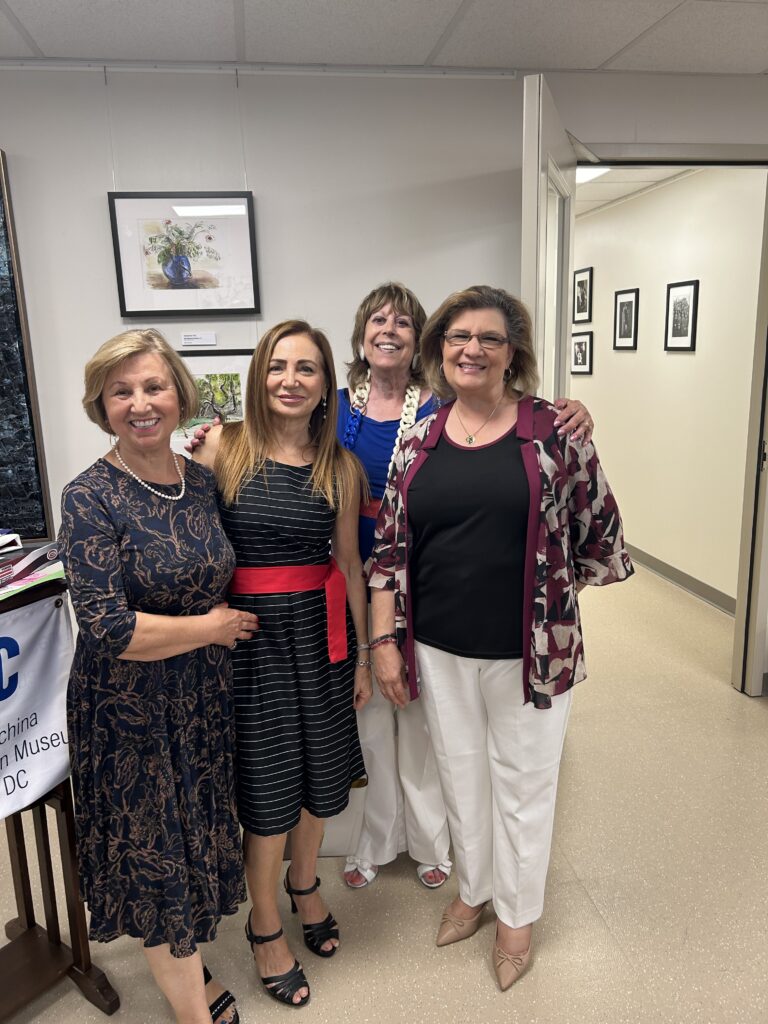
Maria Fusco of the Italian Embassay (second from left) with three AMHS members at her farewell event. With Maria are (l to r) Elisa Di Clemente, Nancy DeSanti and Maria Marigliano. Farewell to Embassy of Italy’s Maria Fusco
By Nancy DeSanti
Holy Rosary Church and Casa Italiana Sociocultural Center (CISC) on August 11 said goodbye to Maria Fusco, the Embassy of Italy’s Education Director for the past eight years. She returned to Italy on August 23, 2024.
At the Mass on August 11, Father Walter Tonelotto gave a warm tribute to Maria, thanking her for her contributions to Holy Rosary Church as a frequent lector at the Italian Mass during the years that she was here. Then she gave heartfelt remarks to the parishioners, saying how much the church meant to her, especially when her father passed away a couple of years ago, and her mother passed away in June.
A farewell reception was hosted by CISC at which time its president and AMHS member, Francesco Isgrò, presented Maria with a gift of a framed photograph of a famous Dante Alighieri statue, which he noted was appropriate given how much Professoressa Fusco has done to promote the Italian language in the United States. He noted her work in coordinating with the Twinning Project which links Italian high school students with American counterparts, and he also noted that she recently coordinated a visit by a group of 40 Italian students, sponsored by the Italian Senate. The students participated in sessions organized by the Italian-American Museum of D.C. (IAMDC).
Francesco also thanked her for participating in so many of the events held in Casa Italiana and outside events held by the Lido Civic Club. In reply, Maria noted that there are now about 200,000 students who are studying Italian in this country. She thanked the Casa Italiana Language School teachers who were present, along with the Ente Promotore.
Maria was a frequent guest at AMHS programs, and afterwards, she told AMHS members present that she really enjoyed coming to our events.
We wish Maria all the best as she begins the next chapter of her life. Già ci manca! (Already she is missed!).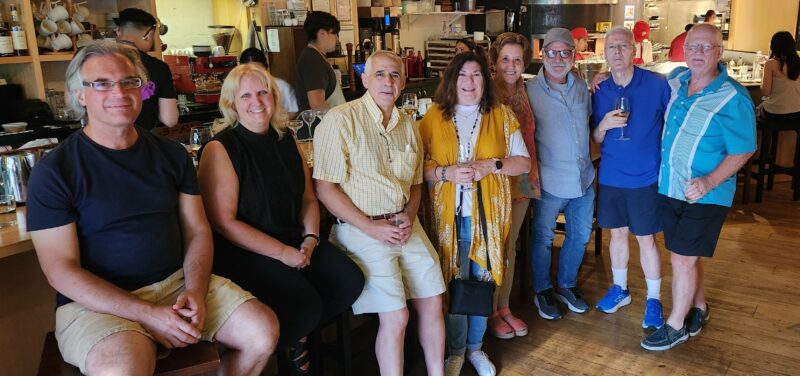
Enjoying Happy Hour were, from left, Ryan Lore, Melis Mull, Rico Allegrino, Teresa Black, Maria D’Andrea-Yothers, Peter Bell, Mark Lino, and Sam Yothers at Tonari.
Credit: Courtesy of Maria D’Andrea-Yothers.AMHS Happy Hour at Tonari
By Maria D’Andrea-Yothers
On Friday, August 23, eight AMHS members and friends enjoyed Happy Hour at Tonari, the first and only “Wafu” Italian restaurant in Washington, D.C. The popularity of Italian food in Japan started decades ago when Japanese were first introduced to spaghetti noodles and red sauce from Italian-American GIs. In 1953, a small restaurant in Tokyo named “Kabe no Ana” (Hole in the Wall) essentially became the unofficial pioneer of “Wafu” Italian cooking when the owner started to use Japanese ingredients in pasta dishes, hoping to appeal to a wider audience. This niche culinary concept took off to meteoric heights in the 1990s, and it is now served in thousands of eateries all over Japan. The AMHS group enjoyed an eclectic mix of wines, beers, and cocktails, as well as Japanese-inspired pizza.
AMHS will be looking to host its next Happy Hour in October, at either Cucina Morini or Osteria Morini. Stay tuned!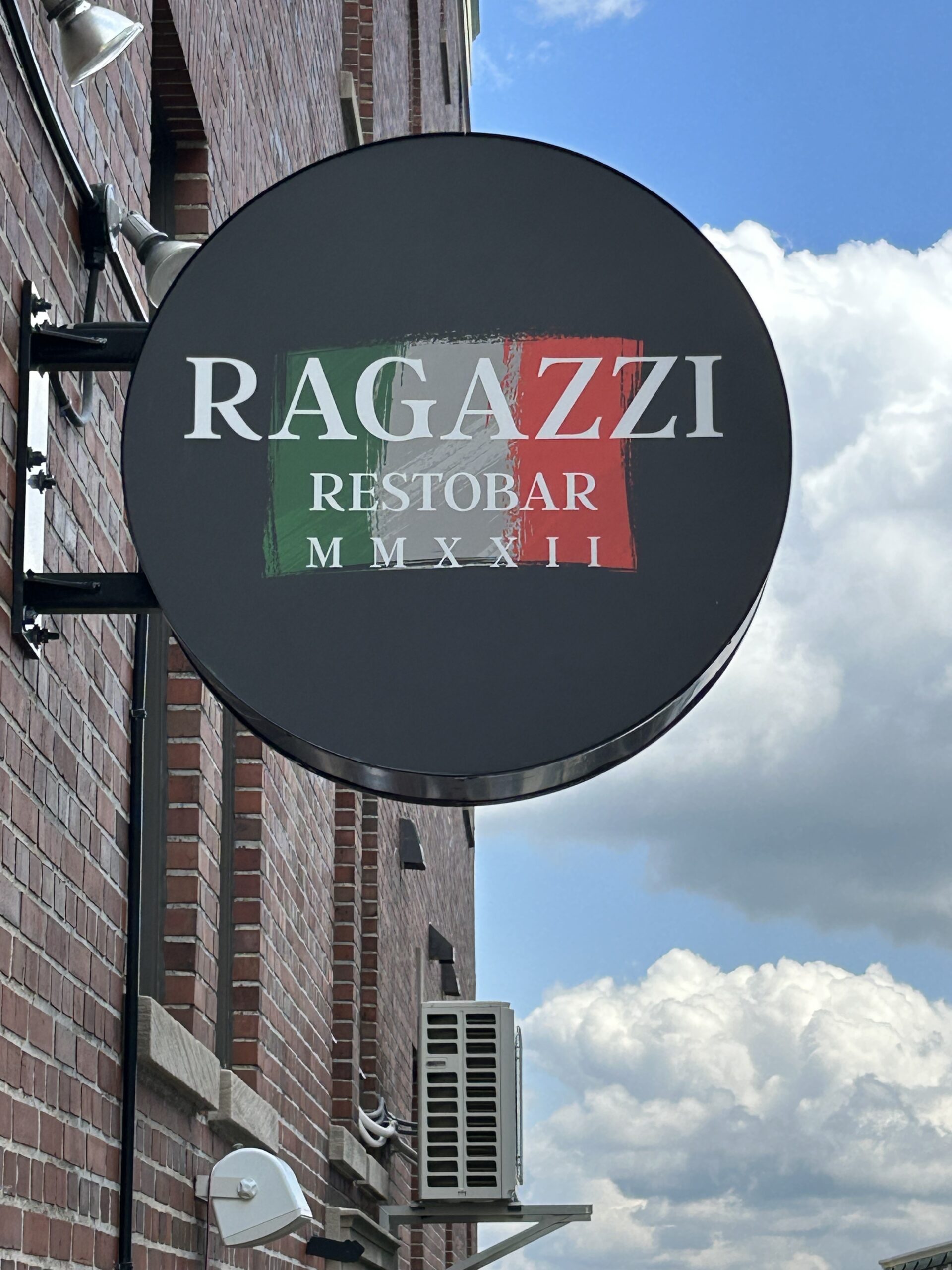
If your travels take you to Halifax, check out Ragazzi. Pleasant Coincidence in Halifax
By Carmine Spellane
I have been spending a good part of my summers in Nova Scotia, specifically on beautiful Cape Breton Island in the north of the province. I first went there in 2003 and bought a vacation home in the town of Baddeck in 2014. While I love the lively Celtic culture (per my paternal lineage) that infuses Cape Breton, very few Italians immigrated to that part of Canada. So, I truly miss access to good Italian cuisine and wines, not to mention hanging out with paisani.
My wife and I took a side trip this summer to Halifax, the largest city in Nova Scotia. Pier 21 in this maritime city functioned as Canada’s Ellis Island prior to the age of jet travel. Ships from around the world, but especially Europe, docked there carrying immigrants with a familiar dream — to make a new live on the North American continent, free from wars and class struggles. Among them were Italians, most of whom headed to the large urban areas of Toronto, Montreal, and points west.
Today, only a few Italians can be found in Halifax. Nevertheless, one evening, my wife and I were walking and looking for a place to eat dinner. On the waterfront, a popular and well-rated Italian eatery called the Bicycle Thief, after the classic film by Vittorio De Sica, was full. On a side street, we found a place called Ragazzi (Little Boys), and, not being able to resist the name, we went inside.
We were greeted by a tall, gregarious gentleman with a slight but distinct accent. He escorted us to a table where I thanked him with my highly imperfect Italian and said, “Mi chiamo Carmine.” (I call myself Carmine.) His smile grew bigger, his manner even warmer, as he introduced himself as Leonardo. He came back to our table several times during our meal to make sure our food and service were satisfactory. They certainly were. I asked him, again in halting Italian, where he hailed from in Italy. “L’Aquila,” he answered. I responded with enthusiasm, telling him, mostly in English by now, that my maternal grandparents were from Molise, and that I belonged to the Abruzzo Molise Heritage Society back home in Washington, D.C. He was surprised that I knew that L’Aquila was chosen as the Italian Capital of Culture for 2026. As we left, Leonardo was busy at the bar. I thanked him again and was rewarded with a bear hug. I assured him that my wife and I would be back on our next visit to Halifax. I urge all of you to do the same if you are ever in that coastal city!
And that, i miei amici (my friends), is how I got my Italian fix in the Great White North this summer!September 2024
-
Proposed Changes to AMHS Bylaws to be Voted On at September General Meeting
On March 23, 2024, President Chris Renneker, Immediate Past President Ray Laverghetta, and Secretary Joseph “Sonny” Scafetta, Jr. met in Washington, D.C., and developed the proposed bylaw amendments (reprinted below with comments on the proposed changes) which were unanimously approved by the Executive Council during its meeting on May 13, 2024. Therefore, the EC strongly recommends that the general members vote to adopt them at the next meeting on September 22, 2024. As required by the current bylaws, at least 30 days notice is being given before the vote. A quorum of 15% of the general members is necessary for the bylaw amendments to be adopted.
Respectfully submitted,
Joseph Scafetta, Jr.
AMHS SecretaryBY-LAWS OF THE GRANT AND SCHOLARSHIP FUND, INC. OF THE ABRUZZO AND MOLISE HERITAGE SOCIETY OF THE WASHINGTON, DC AREA dba as THE ABRUZZO AND MOLISE HERITAGE SOCIETY OF THE WASHINGTON, DC AREA
NOTE: Deleted language is struck through; added language is italicized.
ARTICLE I – Objectives
The objectives of the Grant and Scholarship Fund, Inc. of the Abruzzo and Molise Heritage Society of the Washington, DC Area dba as The Abruzzo and Molise Heritage Society of the Washington, DC Area (“Society”), are to promote the cultural, social, and educational heritage of the Italian regions of Abruzzo and Molise and of Italy in general. The Society also endeavors to increase the awareness of the contributions in the fields of the arts and sciences made by Italians and Italian Americans, especially those having roots in the regions of Abruzzo and Molise.
Comment: No changes.
ARTICLE II – Membership
Section 1: Eligibility
Membership in the Society shall be open to natives of the two regions, their descendants, anyone who is a friend of the regions, and anyone who is interested in and supports the Society’s stated objectives.Comment: No changes.
Section 2: Classes of Membership
There arefour (4)five (5) classes of membership: General (Couple and Single), Associate, Student, and Honorary, and Guest. It shall be the responsibility of theSecondVice President,serving as Membership Committee Chair under Article VII, Section 3,to review membership applications in accordance with the criteria for each class of membership.All classes of membership must be current in annual dues.Comment: A fifth class of Guest membership, to be described below, is created for which no dues are payable. Underlined words are added. Stricken out words are deleted.
a. General Member: a member who has joined as a General Member (couple or single). He/she may hold office, vote, and participate in all activities sponsored by the Society and has all the privileges of full membership of the Society.Comment: No changes.
b. Associate Member: a member who resides outside a fifty (50) mile radius from Washington, DC. An Associate Member has all the privileges of a General Member except for holding office and holding committee chairmanships. An Associate Member shall be entitled to reduced membership dues, as determined by the Executive Committee. An Associate member may apply for General membership.Comment: Change makes it clear that reduced dues for Associate Members are determined by the Executive Committee.
c. Student Member: a member who is enrolled as a full-time student in a school or institution of higher education. A Student Member has all the privileges of General membership, except for holding office. He/she shall be entitled to reduced membership dues, as determined by the Executive Committee.Comment: First change allows Student Members to hold office. Second change makes it clear that reduced dues for Student Members are determined by the Executive Committee.
d. Honorary Member: a person who has made an outstanding contribution to promote the objectives of the Society. This designation shall be conferred by majority vote of the Executive Committee. An Honorary Member is not subject to membership dues, but shall be granted all privileges of General membership, except for voting and holding office. An Honorary Member may apply for General membership.Comment: No changes.
e. Guest Member: a person who has made an outstanding contribution to promote the objectives of the Society. This designation shall be conferred by majority vote of the Executive Committee. A Guest Member shall be entitled to one year of free membership dues. A Guest Member has all the privileges of General membership, except for voting and holding office. A Guest Member may apply for General membership.Comment: This subsection adds a new category of membership.
ARTICLE III – Dues
The Executive Committee shall have the authority to change the annual dues. The annual membership period is for one calendar year from when a member joins the Society. Annual dues must be paid no later than thirty (30) days after receipt of an invoice for current dues. Any member whose dues are unpaid thirty (30) days after the expiration date shall receive a delinquency notice from theMembership CommitteeVice President. If payment of the dues or a letter of explanation has not been received by theMembership CommitteeVice President within thirty (30) days of the mailing of the delinquency notice, the membership of the delinquent member shall be terminated effective on the date of notification.Comment: Responsibility for dues is shifted from the Membership Committee to the Vice President.
ARTICLE IV – Expulsion/Resignation/
ExpulsionThe Executive Committee, for good cause and upon proper investigation and review, mayrequestexpel a memberto resign.Any annual dues paid shall be prorated and refunded. The person shall then cease to be a member.A member resigning from the Executive Committee must give thirty (30) days notice to the President.Comment: The Executive Committee may now expel a member, instead of being limited to merely asking for the resignation of the member who may refuse to resign. Also, whenever a member resigns from the Executive Committee, he/she must give 30 days notice to the President. Under the current Article, nothing was stated about resignations.
ARTICLE V – Officers
The officers of the Society shall consist of the President,FirstVice President,Second Vice President,Secretary, and Treasurer. Besides the officers, the Executive Committee shall compriseandthe Board of Directors, which includesnine (9)six (6) electedboardmembers, plus two (2) ex-officio members (the President Emeritus and the Immediate Past President). The term of office, except for the Boardmembersof Directors, shall be for a period of two years.Officers, except for Board members, may hold the same office for no more than two consecutive terms.Terms of office for the Boardmembersof Directors are described in Article VII, Section65. Any officer of the Society who is absent from threeor moreconsecutive Executive Committee meetings, without just cause, will be considered inactive in his/her post, and may be asked to resign his/her position. Whether an absence is without just cause will be determined by a majority vote of the Executive Committee members present at the meeting.Comment: The positions of the Second Vice President and three Directors are abolished, to be effective September 22, 2024. Also, the limit of two consecutive terms for officers is abolished and the determination of an absence without just cause is decided by a majority vote of the Executive Committee present.
ARTICLE VI – Election of Officers & Directors
Section 1: Nominating Committee
In June of each election year, the President shall appoint a Nominating Committeeof at least three (3) membersto recommend a slate of candidates for positions of officers and directors for the ensuing terms of office. The Nominating Committee shall consist of Society members who have been in good standing for at least two (2) years.Comment: The addition of “and directors” makes it clear that the directors are not officers. Also, the requirement that the Nominating Committee must have at least three members is eliminated.
Section 2: Notice of Elections
Notice of elections shall be given, in writing,electronically to all membersin good standing,together with the slate of candidates recommended by the Nominating Committee, at the beginning of November but no later thantwo (2) weeksthirty (30) days beforeelectionsthe final date for submitting votes. All candidates must agree to serve.Comment: Notice of elections is changed from “in writing” to “electronically” and must be given “at the beginning of November” All members, not just those in good standing, are to be notified. Notice is extended from two weeks to “thirty (30) days before the final date for submitting votes.”
Section 3: Elections
Elections of officers and directors shall take placeduringthe general membership meeting of the Societyin the month of November.Additional nominations for office may be made in writing to the Nominating Committee, prior to the meeting, or from the floor during the meeting, after which the nominations will be closed and elections will be conducted by secret ballot.Members must submit their votes electronically to the Nominating Committee within thirty (30) days after receiving the notice of elections. Members may vote for other members not proposed by the Nominating Committee, contingent upon the consent of the other members. The Nominating Committee shall be responsible for counting the votes. The candidate for each office receiving the most votes shall be declared elected to that office for the ensuing term.However, if there are no additional candidates announced during the general membership meeting, the prospective candidates may be voted in by acclamation.The elected candidates shall assume office on the following January 1st and be installed at theJanuaryfirst general membership meeting of each year.Comment: The requirement that elections take place during the general membership meeting in November is eliminated. Instead, elections will be held electronically during November. Members must submit their votes within thirty (30) days after receiving notice of the elections. Members may vote for other members not proposed by the Nominating Committee, as long as the other members consent. Responsibility for counting the votes is given to the Nominating Committee. The elected candidates will be installed at the first general membership meeting of each year, instead of specifically in January, in case the first meeting takes place later than January.
ARTICLE VII – Duties of Officers & Directors
Section 1: President
The President shall preside over the general membership and Executive Committee meetings of the Society. Although the President presides at these meetings, he/she votes only to break ties. The President shall enforce the by-laws of the Society and ensure that the Society is pursuing appropriate programs and activities consistent with its objectives. The President shall establish any committee he/she deems appropriate, and appoint itschairman,chairperson.except for the chairmen of the Programs and Membership Committees which will be chaired, respectively, by the First and Second Vice Presidents.The President has the privilege to be a non-voting member of any committee of the Society. The President will be the principal delegate to any committee or organization with which the Society is affiliated, or he/she may appoint a representative in his/her place. In the event an elected office becomes vacant, the President may appoint a qualified member as a replacement to serve the remaining term of that office.Comment: The second sentence makes it clear that, as the presiding officer, the President votes only to break ties. The deletion allows the President to appoint the chairpersons of the Programs and Membership Committees.
Section 2:
FirstVice President
TheFirstVice President shall perform such duties as the President shall direct. He/she will become Acting President in the absence of the President for any reason. In case of the resignation or death of the President, theFirstVice President shall become President for the President’s remaining term of office; in the event theFirstVice President is unable or unwilling to assume the presidency, the Immediate PastSecond VicePresident shall fill the unexpired term.The First Vice President shall also assume the role of Programs Committee chairman, responsible for implementing the functions of the Programs Committee as described in Article IX, Section 1 of these by-laws.
Comment: The First Vice President will become the sole Vice President. If the Vice President is unable or unwilling to assume the presidency, the Immediate Past President returns to the presidency. The deletion allows the President to appoint the chairperson of the Programs Committee.Section 3: Second Vice President
The Second Vice President shall perform such duties as the President may direct. He/she shall exercise the powers of the President in the absence of the President and First Vice President. The Second Vice President shall also assume the role of Membership Committee chairman, responsible for implementing the functions of the Membership Committee as described in Article IX, Section 2 of these by-laws.Comment: The position of the Second Vice President is abolished. Also, this deletion allows the President to appoint the chairperson of the Membership Committee.
Section
Four3: Secretary
The Secretary shall record the minutes of any official action taken at general membership meetings, Executive Committee meetings, and other meetings as directed by the President. He/she, in cooperation with the Publications & Publicity Committee,will prepare and send out notices of such meetings. The minutes of the Executive Committee meetings shall be available for inspectionby the general membershipat the request of a member. He/she shall coordinate, review, and prepare responses to any general correspondence of the Society.The Secretary shall also maintain the Society’s legal documents.Comment: The Secretary will become solely responsible for preparing and sending out notices of meetings without the need to coordinate with any committee. Also, the Secretary will no longer be required to maintain the Society’s legal documents which are only the current signed by-laws.
Section
54: Treasurer
The Treasurer shall receive all the Society’s incoming funds and deposit the same in the Society’s accounts; provide necessary signatures for outgoing disbursements from said accounts; and maintain all financial records of the Society. The Treasurer shall report at Executive Committee meetings on the expenses incurred and the revenues received during the preceding reporting period. At the end of each fiscal year, the Treasurer shall present the financial records to theBudget and FinanceExecutive Committee for review and/or audit. The Treasurer shall also prepare and submit any forms or documents required by the Internal Revenue Service, or for any other official fiscal purposes. The Treasurer shall also maintain the Society’s legal documents.Comment: At the end of each fiscal year, the Treasurer shall present the financial records to the Executive Committee, instead of just to the Budget & Finance Committee. Also, the Treasurer will now maintain the Society’s legal documents which are only the current signed by-laws.
Section
65: Board of Directors
a. The Board of Directors shares the responsibility of managing the Society and its resources, and providing overall guidance and advice by virtue of its seat on the Executive Committee.
Comment: No changes.b. The Board of Directors shall consist ofnine (9)six (6) members whohave beenare in good standingfor at least two years. The Board shall be divided into three (3) groups ofthreetwo (2) members serving staggered terms. Each group shall be elected for three (3) yearsand thereafter have three, two and one remaining years of office. The group serving its last year in office shall retire at the end of the year. Each year a new group ofthreetwo (2) shall be elected for a three-year term to replace the retiring Directors. No electedBoard memberDirector mayserve consecutive terms orserve simultaneously in anyotherofficer position of the Society.Comment: The number of members on the Board of Directors is reduced from nine to six because of the difficulty of recruiting three new ones every year. Also, the requirement that a member must be in good standing for at least two years is eliminated so that persons who are members for less than two years may be elected to serve on the Board. Furthermore, the prohibition against Directors serving consecutive terms is removed.
c. In addition to the afore-mentioned nine (9) elected Directors, the President Emeritus and the Immediate Past President serve as additional members of the Board.Comment: This subsection is deleted to remove the President Emeritus and the Immediate Past President as Directors. However, they remain members of the Executive Committee.
ARTICLE VIII – Committees
Section 1: Executive Committee
The Executive Committee shall consist of the officers, the Board of Directors, the President Emeritus, and the Immediate Past President of the Society. Officers include the President,First and SecondVice President, Secretary, and Treasurer, and the Board of Directors. The President shall be thechairmanchairperson of the Executive Committee. The President, at his or her discretion, may invite any member of the Society to any Executive Committee meeting as a non-voting participant. The Executive Committee shall have the responsibility of management of the Society and its resources. It shall plan and schedule Society activities and coordinate the same with standing committees and other entities of the Society, as needed. The Executive Committee shall meet at leastsix (6) times aquarterly each year.Seven (7) voting membersA majority of the Executive Committee shall constitute a quorum for the transaction of business. The minutes of all meetings of the Executive Committee shall be taken by the Secretary and made available at the following Executive Committee meeting.Comment: The added language in lines 1 and 2 makes it clear that the Executive Committee includes, in addition to the officers, the Board of Directors, the President Emeritus, and the Immediate Past President. The deletions made in lines 2 and 3 make it clear that there will be just four officers: President, Vice President, Secretary, and Treasurer. The first change in line 9 reduces the number of required yearly Executive Committee meetings from six to four. The second change in line 9 revises the number of Executive Committee members needed for a quorum from seven (7) to a majority.
Section 2: Standing Committees
a. The President of the Society shall appoint theChairmenChairpersons of Standing Committees, except for the chairmen of the programs and Membership committees which are chaired by the First and Second Vice-President, respectively.Comment: The deleted language leaves it clear that the President appoints the Chairpersons of all Standing Committees.
b. The Standing Committees are:
- Programs & Hospitality
- Membership, Scholarship, Fundraising, Budget, & Finance
Budget & FinanceHospitalityScholarshipFundraising- 3. Publications, & Publicity, Web Site, & Social Media
Web Site & Social Media
Comment: The current eight (8) Standing Committees are combined into just three (3) Standing Committees performing the same functions.
c. The President mayalsoestablish anyothercommitteedeemednecessary to conduct the activities of the Society. The Standing CommitteechairmanChairpersons, or his/her representative, shall reportitstheir activities at Executive Committee meetings.Comment: The deletions and additions are grammatical edits.
ARTICLE IX – Function of Committees
Section 1: Programs & Hospitality Committee
a. It shall be the responsibility of the Programs & Hospitality Committee to prepare and present to the Executive Committee proposals of Society activities and programs and the plans for their accomplishment. This Committee also shall, with the cooperation of other Standing Committees, identify subjects of interest to the Society suitable for discussions and presentation at general membership meetings.The first Vice President shall be the chairman of the Programs Committee.Comment: The deletion removes the First Vice President as the Chairperson of this Committee.
b. It shall also be the responsibility of the Programs & Hospitality Committee to provide refreshments and food at each general membership meeting. It shall have the authority to spend Society funds for needed refreshments, food, materials, and supplies within the budget limit specified by the Executive Committee. The Programs & Hospitality Committee shall also assist in welcoming new members to the Society.Comment: New subsection b adds the hospitality functions to this combined Programs & Hospitality Committee.
Section 2: Membership, Scholarship, Fundraising, Budget, & Finance Committee
a. It shall be the primary responsibility of theMembershipCommittee to receive membership applications within the guidelines set forth in Article II. The Committee shall maintain a current membership database to include all pertinent information on each Society member. The Committee shall make available, periodically, the Society’s updated membership roster to members of the Executive Committeeand to any Society member in good standing requesting same, however, the information therein is not to be used for commercial or personal gains and is not to be made available for nonmembers. The Committee shall, with the cooperation of the President and the Executive Committee, develop and implement a plan for the promotion of membership in the Society. Each year the Committee shall, in cooperation with the Treasurer, send out payment notices for dues to each member, and delinquency notices, when necessary.The Second Vice-President shall be the chairman of the Membership Committee.Comment: Because of privacy concerns, the membership roster will no longer be made available to any member in good standing. Also, the Second Vice President is removed as the Chairperson of this Committee.
b. It shall be the secondary responsibility of the Committee to: 1) monitor monies contributed to the Scholarship Fund; 2) ensure the broad dissemination of information about the scholarship program among colleges and universities; 3) take measures to encourage eligible dependents of Society members to apply for the Society’s scholarships; and 4) ensure that scholarship recipients adhere to the conditions associated with the scholarship award. The Committee shall suggest to the Executive Committee, based on the availability of funds, the number of scholarships to be awarded annually.Comment: The addition of this subsection b adds the function of the Scholarship Committee to this new combined committee.
c. It shall be the tertiary responsibility of the Committee to develop and execute a plan to raise funds for the Society’s scholarships, the AMHS Grant and Scholarship Fund (AMHS GASF), and other activities of the Society considered appropriate by the Executive Committee.Comment: The addition of this subsection c adds the function of the Fundraising Committee to this new combined committee.
d. It shall also be the responsibility of the Committee to serve as the overseer of all matters pertaining to the finances of the Society. The Committee will draft the annual budget at the beginning of each operating year and will submit it to the Executive Committee for review and approval. The Committee will conduct periodic reviews of the Society’s financial status during each operating year when necessary, but at mid-year as a minimum, and report its findings to the Executive Committee. The Committee will draft policy for the management of the AMHS Grant and Scholarship Fund (AMHS GASF) and submit such policy to the Executive Committee for its review and approval. The Committee will perform the end-of-calendar year review and/or audit of the Treasurer’s financial records required by Article VII, Section 5, of the by-laws and report its findings to the Executive Committee.Comment: The addition of this subsection d adds the function of the Budget & Finance Committee to this new combined committee.
Section 3: Budget & Finance Committee
It shall be the responsibility of the Budget & Finance Committee to serve as the overseer of all matters pertaining to the finances of the Society. The committee will draft the annual budget at the beginning of each operating year and submit it to the Executive Committee for review and approval. The committee will conduct periodic reviews of the Society’s financial status during each operating year when deemed necessary, but at mid-year as a minimum, and report its findings to the Executive Committee. The committee will draft policy for the management of the AMHS Grant and Scholarship Fund (AMHSGASF) and submit to the Executive Committee for its review and approval. The committee will perform the end-of-calendar year review and/or audit of the Treasurer’s financial records required by Article VII, Section 6 of the by-laws and report its findings to the Executive Committee.Comment: This section is being deleted and the described functions have been added above to the duties of the combined Membership, Scholarship, Fundraising, Budget, & Finance Committee.
Section 4: Hospitality Committee
It shall be the responsibility of the Hospitality Committee to provide refreshments at each general membership meeting. It shall have the authority to spend Society funds for needed refreshments, materials, and supplies within the budget limit specified by the Executive Committee. The Hospitality Committee shall also assist the Membership Committee in welcoming new members to the Society.Comment: This section is being deleted and the described functions have been added above to the duties of the combined Programs & Hospitality Committee.
Section 5: Scholarship Committee
It shall be the responsibility of the Scholarship Committee to: 1) monitor, in cooperation with the Fundraising Committee, monies contributed to the Scholarship Fund; 2) periodically review the Society’s partnership with other organizations in awarding the scholarships, and to advise the Executive Committee whether or not such partnership should be continued; 3) ensure the broad dissemination of information about the Scholarship program among colleges and universities; 4) take measures to encourage eligible dependents of Society members to apply for the Society’s scholarships; and 5) ensure that scholarship recipients adhere to the conditions associated with the scholarship award.
The Scholarship Committee shall suggest to the Executive Committee, based on the availability of funds, the number of scholarships to be awarded annually.Comment: This section is being deleted and the described functions have been added above to the duties of the combined Membership, Scholarship, Fundraising, Budget, & Finance Committee.
Section 6: Fundraising Committee
It shall be the responsibility of the Fundraising Committee to develop and execute a plan to raise funds for the Society’s scholarships, the AMHS Grant and Scholarship Fund (AMHS GASF), and other activities of the Society deemed appropriate by the Executive Committee and the membership.Comment: This section is being deleted and the described functions have been added above to the duties of the combined Membership, Scholarship, Fundraising, Budget, & Finance Committee.
Section
73: Publications, & Publicity, Web Site, & Social Media Committee
a. It shall be the primary responsibility of thePublications & PublicityCommittee to procure appropriate written and graphic material suitable in the Society’s bi-monthly newsletter, the AMHS Notiziario, and to arrange for theprinting anddistribution of the newsletter to each member. The Committee shall include the Editor of the Society’s newsletter.Comment: The number of this section is changed from 7 to 3. Also, the title of this newly numbered section is changed to include the title of the eighth section below. Further, subsection a in line 1 is changed to indicate that the primary responsibility of the new combined Committee is the publication of the newsletter which will be disseminated monthly instead of bi-monthly. In line 3, the requirement that the newsletter be printed is removed. However, the newsletter must still be distributed, implicitly by any other means, for example by email, to each member.
Section 8: Website & Social Media Committee
b. It shall be the responsibility of theWebsite and Social MediaCommittee to maintain the Society’s website and social media content, including, but not limited to, the AMHS Facebook page. The Committee shall be responsible for assuring the information presented on the website and social media posts accurately represent the mission, objectives, policies, and activities of the Society and that this content is updated regularly so that all information presented thereon is current. The Committee shall coordinate and cooperate closely with the officers of the Societyin orderto execute these responsibilities.Comment: The number for section 8 is changed to subsection 3b. Also, the deletion made in lines 2 and 3 indicate that maintenance of a Facebook page is no longer required.
ARTICLE X – Expenditure of Funds
Section 1: Disbursements
Society funds shall be disbursed only upon presentation, to the Treasurer, of a written invoice from a responsible Society member, or from a contractor authorized to provide products or services to the Society. The Treasurer shall make all disbursements and deposits of Society funds and shall keep proper records of all transactions. Upon the absence or disability of the Treasurer, the President is authorized to act in place of the Treasurer.Comment: The title of this section is changed from Disbursement to Disbursements.
Section 2: Discretionary Authority
The President may approve any single expenditure of funds up to and including five hundred dollars ($500) without the approval of the Executive Committee. The Executive Committee may approve any expenditureupwards ofabove five hundred dollars ($500), with the approval of the Budget & Finance Committee and the approval of the Executive Committee.Comment: The President may approve an expenditure of $500, and the Executive Committee may approve any expenditure above $500 without the approval of any other committee.
Section 3: Audit and Fiscal Year
The fiscal year of the Society shall be the calendar year. The financial records of the Society shall be presented, by the Treasurer, to theBudget & FinanceExecutive Committee for review and/or audit at the end of each fiscal year.Comment: The presentation of the financial records shall be presented by the Treasurer for audit by the Executive Committee instead of to the Budget & Finance Committee.
ARTICLE XI – Meetings
Section 1: Rules of Order
The Society shall endeavor to conduct all meetings in accordance with the latest edition of Robert’s Rules of Order.Comment: No changes.
Section 2: Frequency of General Membership Meetings
The Society shall haveno more than six (6)general membership meetingsper year. The Executive Committee shall determine the date for each meeting. Special meetings may be called by the President or by written request of ten percent (10%) of the membership of the Society.General membership meetings may be open to non-members.Comment: The limitation on the number of yearly general membership meetings is eliminated. Also, the last sentence is removed because it is considered unnecessary to state that nonmembers may attend meetings.
Section 3: Quorum at General Membership Meetings
A quorum at any general membership meeting shall consist offifteenten percent (1510%) of the GeneralmembershipMembers.Comment: The quorum is reduced from 15% to 10% of the General Members.
Section 4: Social Events
Social events of the Society may be held in conjunction with general meetings or held separately and may be open to nonmembers. Nonmembers may, at the discretion of the Executive Committee, be charged a higher fee than members of the Society, should a fee be required.The Executive Committee shall determine whether an event will be open to nonmember participation.Comment: The last sentence is removed because it is considered unnecessary to state who determines whether a social event is open to nonmembers.
ARTICLE XII – Amendments
These by-laws may be amended by a majority vote ofa quorum of General Members in attendance at a general membership meetingall members of the Society voting electronically, provided, however, that a notice of a vote on the proposed amendment to the by-laws is givenin writingat least thirty (30) days prior to such a vote. A request for amendment proposalsmaymust be presented to the Executive Committee duringthe course ofany of its meetings or conveyed to the Executive Committeein writing and signedby three (3) General Members in good standing. The Executive Committee, after careful review of the proposed amendment and after its approval by majority vote, shall recommend the same for adoption by all membersthe general membership. A notice of the final adopted amendments shall be sent to the membersfor their records. The Secretary willinsureensure that the adopted amendments are incorporated into these by-laws.Comment: In lines 1 and 2, by-law amendments will no longer be approved by a quorum in attendance at a general membership meeting. Instead, all members will vote on the amendments electronically. In lines 3 and 4, a notice of a vote on proposed amendments no longer must be made in writing, thus implying that the notice may be given by other means, for example, by email. In lines 4-6, a request for amendment proposals must be presented to the Executive Committee, but does not need to be in writing and signed. The request may be made by other means, for example, by an email from three General Members in good standing. General Members do not include Associate, Student, Honorary, and Guest Members. In lines 7 and 8, a proposed amendment approved by the Executive Committee shall be recommended for adoption by all members. In line 9, the phrase “for their records” is deleted as unnecessary.
ARTICLE XIII – Indemnity
Section 1: Good Faith
An officer of the Society shall perform his/her dutiesas an officerin good faith and in a manner that he/she reasonably believes to be in the best interests of the Society. To the fullest extent that the laws of Washington, DC, as now in effect or hereafter amended, permit elimination or limitation of the liability of officers, no officer of the Society shall be personally liable for monetary damages as such for any action taken or failure to take any action as an officer acting in good faith.Comment: The first paragraph of Article XIII is enumerated as Section 1 and is entitled “Good Faith”. In line 1, the phrase “as an officer” is deleted as unnecessary. The phrase “acting in good faith” is added at the end of this paragraph to make it clear that only officers “acting in good faith” shall be exonerated from personal liability.
Section 2: Inapplicability
The provisions of this section shall not apply to the responsibility or liability of an officer or of any other person who has acted at the request of the officer, pursuant to any criminal statute. The Society shall defend, indemnify, and hold harmless any past or present officer and any other person who has acted in good faith or is acting on behalf and at the request of theSociety’s officersExecutive Committee fromany andall claims and/or lawsuits arising out of the performance of the duties of such officer and such other person. The person against whom a claim is made or lawsuit filed shall notify the President of the Societyin writing of the claim or lawsuitas soon as possible. The Society shall have no obligation to defend or indemnify any person for intentional or willful misconduct, or gross negligence.Comment: The second paragraph of Article XIII is enumerated as Section 2 and is entitled “Inapplicability”. The first sentence is expanded to include any other person who has acted at the request of an officer. The phrase “in good faith” is added in line 4 to limit assistance only to any officer and any other person acting in such a manner. The phrase “Society’s officers” is replaced by “Executive Committee” to make it clear that assistance will be rendered only to a person acting on behalf and at the request of the Executive Committee, not just the officers. The phrase “in writing of the claim or lawsuit” is deleted so that the person may notify the President by any means.
ARTICLE XIV – Articles of Incorporation
The Abruzzo and Molise Heritage Society of the Washington, DC Area, was incorporated in March 2001 under the provisions of the District of Columbia Non-Profit Corporation Act (D.C. Code, 1983 Edition, Title 29, Chapter 5) as a non-profit cultural, educational, and charitable organization. The Grant and Scholarship Fund, Inc., of the Abruzzo and Molise Heritage Society of the Washington, DC Area, was incorporated in March 2003 under these same provisions.
Comment: No changes.
In June 2004, the Internal Revenue Service recognized the Grant and Scholarship Fund, Inc., of the Abruzzo and Molise Heritage Society of the Washington, DC Area, as a nonprofit organization under Section 501(c)(3) of the Internal Revenue Code, and as a public charity under Sections 509(a)(1) and 170(b)(1)(A)(vi) of the Internal Revenue Code.
Comment: No changes.
In 2014, the Abruzzo and Molise Heritage Society of the Washington, DC Area, donated all of its assets to the Grant and Scholarship Fund, Inc., of the Abruzzo and Molise Heritage Society of the Washington, DC Area, and ceased operations.Comment: No changes.
In April 2014, the District of Columbia Department of Consumer and Regulatory Affairs, Corporations Division, bestowed a Certificate of Trade Name Registration to the Grant and Scholarship Fund, Inc., of the Abruzzo and Molise Heritage Society of the Washington, DC Area, for the Trade Name: The Abruzzo and Molise Heritage Society of the Washington, DC Area.Comment: No changes.
ARTICLE XV – Dissolution
In the event of dissolution of the Society, theBoard of DirectorsExecutive Committee shall, after paying and making provisions for the payment of all liabilities, distribute all the assets of the corporation to an organization, dedicated to charitable and/or educational purposes, that promotes the Italian language and culture, and which has been recognized as a 501(c)(3) organization by the Internal Revenue Service.Comment: Responsibility for distributing the assets of the corporation is changed from the Board of Directors to the Executive Committee.
July/August 2024
